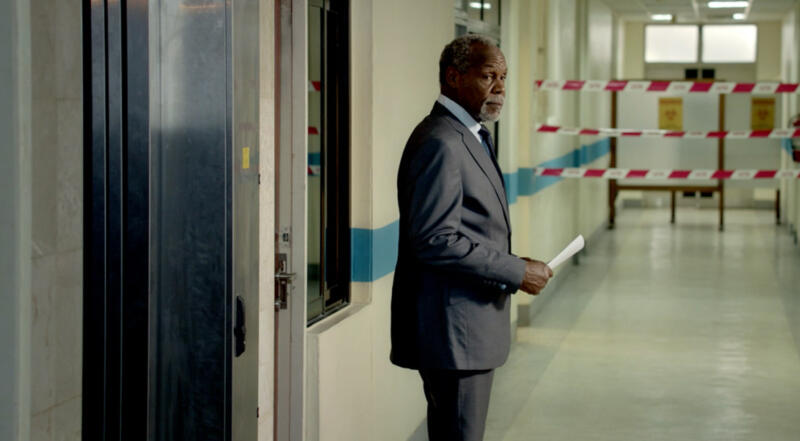
In early 2014, health workers began to identify cases of the Ebola Virus in Guinea. An outbreak of the virus had the potential for a ninety percent case fatality rate. Six months after the first cases were identified, the World Health Organization declared an international health emergency. Over the several months that the virus spread, so did panic, xenophobia and racism. Old ideas about Africa’s backwardness penetrated private and media conversations. Then as the virus jumped from its hub in Sierra Leone, Liberia, and Guinea over to Nigeria, a new story was made possible.
In Steve Gukas’ new film, “93 Days,” he portrays the experience of Ebola’s containment in Nigeria. The film, while sometimes melodramatic, gives some insight into the lives of the healthcare workers who made this containment possible, including the four who died after infection. The film most closely follows Dr. Stella Ameyo Adadevoh, Dr. Ada Igonoh, and Dr. Benjamin Ohiaeri. They were staff at First Consultants Medical Centre where the index patient was taken after becoming severely ill during his flight from Liberia. The humanity of the primary characters is relationship-based; they are newly pregnant or mothers, husbands or fathers. There is as much to risk in their private lives as in the lives of the twenty-one million Lagosians they are trying to protect.
The film features a mostly Nigerian cast, including Bimbo Akintola as Dr. Adadevoh, the woman credited for first raising concerns about the index patient and insisting on his quarantine as his diagnosis was confirmed. It also stars American actor Danny Glover. In the post-film Q&A at the Chicago International Film Festival, Glover revealed that he’d initially been offered only an appearance in the film but after reviewing the script, he’d asked to play a more significant role. Thus his casting of Dr. Ohiaeri, the founder of First Consultants.
I was hesitant to see the film. I only happened on a ticket and later found out that I’d be watching a film about the Ebola outbreak. It seemed too soon. The outbreak had not yet been declared officially over in Liberia, Guinea or Sierra Leone before the initial release of the film. As it turns out “93 Days” is in line with much of Danny Glover’s black liberation filmography. It is a film meant to educate and inspire like “Tula: The Revolt,” the Dutch-produced film about the 1795 revolt of enslaved Africans in Curaçao; “Namibia: The Struggle for Independence,” the Charles Burnett-directed film on SWAPO’s fight for independence from colonial rule; the long-awaited Toussaint L’Ouverture film that the late Hugo Chavez backed; and Glover’s role as producer of “The Black Power Mixtape” and “Concerning Violence.”
The speech that Ohiaeri delivers in the final scene of “93 Days” seems to be the impetus for the filmmakers. At a service for those lost in the fight against the virus, Glover’s character proclaims that, “We did this. We were able to stop this.” This combined with the film’s commitment to showcasing the upper class lifestyle of Lagos, aims towards one message. It’s a message of hope that is supposed to extend beyond the characters and out towards the audience — Lagos, Nigeria, Africa don’t have to be limited by the same old negligent and incomplete stories.
“93 Days” continues to tour the international film festival circuit. It’s heading to the Pan African Film Festival next, screening on Saturday, February 18 at 7:45pm and Monday, February 20 at 8:20pm. For tickets, click here.
Watch a trailer for the film below:
Nina Yeboah is a Chicago-based writer and black art enthusiast. She’s also leads Chicago Reading Africa, a book and film discussion group.

